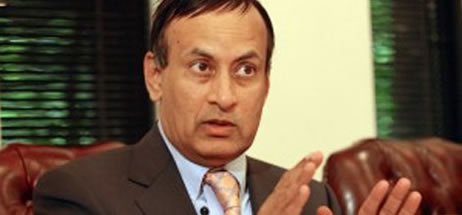
Who negotiates deals between governments? Is it the top officials and diplomats they have appointed to maintain the national trust? Or is it anonymous sources and TV talking heads? These days the lines seem to be blurring, and I’m not sure we’re better for it.
As you may know by know, The New York Times published an article this morning that quotes anonymous American officials who say that the US is seeking to put troops over the border into Pakistan to pursue Taliban militants.
This was immediately denied by NATO‘s US Rear Adm Gregory Smith.
There is absolutely no truth to reporting in The New York Times that U.S. forces are planning to conduct ground operations into Pakistan.
The suggestion that Pakistan would allow foreign troops on her soil was also immediately rejected by Ambassador Husain Haqqani who declared:
Pakistani forces are capable of handling the militant threat within our borders and no foreign forces are allowed or required to operate inside our sovereign territory…We work with our allies, especially the U.S., and appreciate their material support but we will not accept foreign troops on our soil – a position that is well known.
So what is the true story? Actually, we don’t know all the facts. It could be that some US official asked if they could send some troops onto Pakistani territory and were immediately rejected by Gen. Kayani and Ambassador Haqqani.
It could be that our military representatives and diplomats have been negotiating for increased material assistance such as the latest combat helicopters, night vision, and communications equipment and some underling misunderstood the discussion because he was only privy to partial information.
It could also be that there are some who believe that despite Pakistan’s insistence on defending its sovereignty, they can negotiate through media campaigns.
Just as the journalists and editors probably believed that the fake Wikileaks story had been verified by someone before they published it, it is likely that the journalists at The New York Times believe the story about US trying to get troops over the border is also true. But it appears that, like the fake Wikileaks story, the American reporters have failed to investigate enough as the report was immediately discredited by both American and Pakistani officials.
Obviously, this is not to say that we don’t need greater transparency in all things. But there is a difference between transparency and speculation. What we are seeing more and more is speculation, not fact-based analysis and this is causing confusion and feeding the conspiracy theory virus that has infected our media so deeply that respectable newspapers published a fake story about Wikileaks without verifying that it was, in fact, legitimate.
What is unfortunate is that this report could have opened a legitimate conversation about the limits between Pak-US cooperation in the fight against jihadi militants. Certainly there is much cooperation that benefits both nations, but there are also limits to this cooperation. The US will surely not be willing to put their soldiers under the command of Pakistan’s officials. Likewise Pakistan is not going to allow foreign troops to operate on our sovereign soil. But between these limits, there is a lot of room for discussion. Actually, even those limits are probably discussed. The problem with this New York Times report is that it states as a fact that the US military seeks to expand its presence in Pakistan despite the immediate rejection of this by all parties.
The headlines in tomorrow’s conspiracy sheets are already being written with great excitement. These media jihadis will take any opportunity to excite the masses and create an atmosphere of fear and paranoia. And this does not do any good. Actually, it threatens to place unnecessary obstacles in the way of negotiations between our diplomats and military officers and those of our allies.
It is clear that we need more transparency in our cooperation with the US. As Ardeshir Cowasjee expertly observed, there is too much hypocrisy by some civil and military leaders who say one thing to us and another to the Americans. But we also need to allow our leaders to do their jobs. Wild speculation and conspiracy theories undercuts their ability to negotiate for Pakistan’s best interests. Just as we don’t need government officials reporting the news, we don’t need our journalists trying to negotiate terms with foreign governments. Let each do his job, and we Pakistan will gain more from both.
![]()





